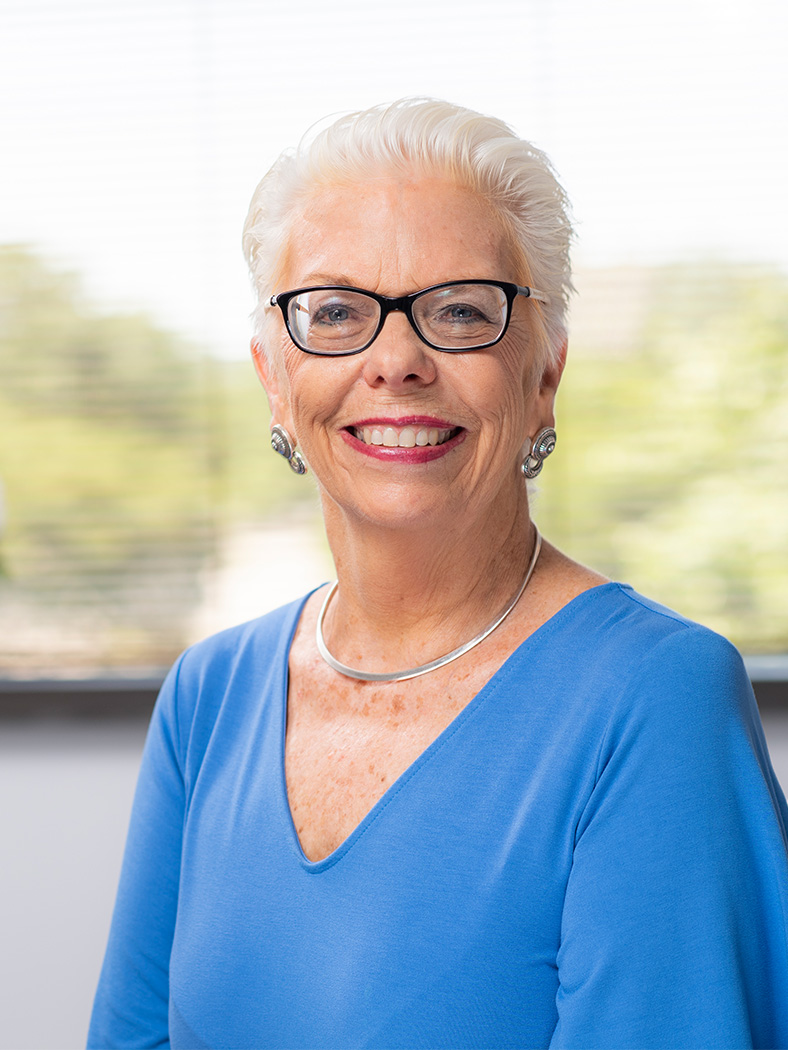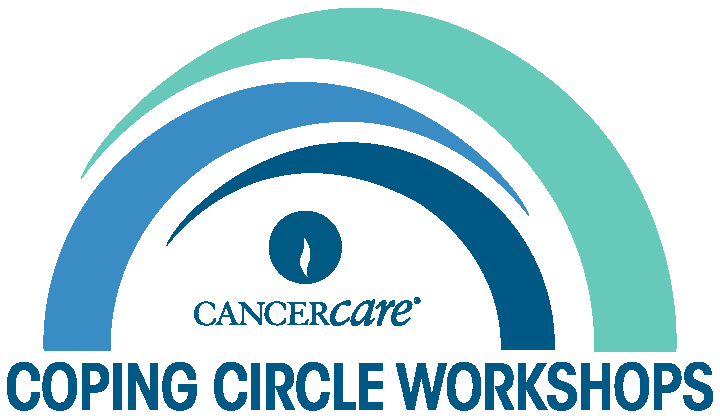Resource Navigation
Learn more about how CancerCare Resource Navigation can help you address barriers to care.
Connect Education Workshops
Listen in by telephone or online as leading experts in oncology provide up-to-date information about cancer-related issues in one-hour workshops. Podcasts are also available.
Podcasts
Doctor-Patient Communication
- Update from the 2024 American Society of Hematology (ASH) Annual Meeting, Dec 19, 2024
- For Caregivers: Coping with the Stresses of Caregiving When Your Loved One Has Triple Negative Breast Cancer, Nov 13, 2024
- Update on Primary Central Nervous System Lymphoma (PCNSL), Oct 30, 2024
- Metastatic Prostate Cancer: Current Treatment Advances, Oct 29, 2024
- Metastatic Triple Negative Breast Cancer: Strategies to Cope, Oct 23, 2024
- Update on CAR T-Cell Therapies, Oct 22, 2024
- Triple Negative Breast Cancer and African American Women, Oct 16, 2024
- Highlights from the 2024 American Society of Clinical Oncology (ASCO) Annual Meeting: The Art and Science of Cancer Care from Comfort to Cure, Sep 24, 2024
- Triple Negative Breast Cancer: Coping with the Fear of Recurrence, Sep 18, 2024
- Updates from the American Society of Clinical Oncology (ASCO) 2024 on Triple Negative Breast Cancer, Sep 11, 2024
- Current Perspectives on Cancer Survivorship, Sep 10, 2024
- Highlights from the 2024 American Society of Clinical Oncology (ASCO) Annual Meeting: The Art and Science of Cancer Care from Comfort to Cure, Aug 15, 2024
- HER2-Positive Metastatic Breast Cancer: What’s New in Treatment and Quality of Life, Apr 24, 2024
- Diverse Populations Participating in Decisions about Your Care, Apr 22, 2024
- Updates in the Treatment of Estrogen Receptor (ER) Positive, Progesterone Receptor (PR) Positive and HER2 Positive Breast Cancer from the 46th Annual San Antonio Breast Cancer Symposium (SABCS), Jan 17, 2024
- Updates from the 2023 American Society of Hematology (ASH) Annual Meeting, Dec 14, 2023
- Living with Breast Cancer - 46th Annual San Antonio Breast Cancer Symposium, Dec 13, 2023
- Highlights from the 2023 American Society of Clinical Oncology (ASCO) Annual Meeting – “Partnering With Patients: The Cornerstone of Cancer Care and Research”, Aug 17, 2023
- Diverse Populations Participating in Decisions About Your Care With Your Health Care Team, Jun 28, 2023
- Understanding How Health Care Disparities May Influence Your Cancer Treatment and Care: With Tips and Strategies to Find the Best Cancer Treatment and Health Care Team for You, May 15, 2023
- Update from the 2022 American Society of Hematology (ASH) Annual Meeting, Dec 15, 2022
- Bladder Cancer: Treatment Update, Aug 17, 2022
- Emerging Importance of Telemedicine/Telehealth Appointments in Communicating with Your Health Care Team, Mar 16, 2022
- COVID-19, Omicron & Delta Variants, COVID-19 Vaccines & Booster Vaccines: Revised Guidelines for People Living with Cancer and Their Loved Ones, Feb 7, 2022
- For Caregivers: Informative Tips to Cope with Your Loved One’s Bladder Cancer, Dec 1, 2021
- Cancer and Flu Shots, Nov 9, 2020
- Participating in Decisions about Your Care, Apr 8, 2020
- Trends in Oncology and Treatment Planning: What You Need to Know, Mar 4, 2020
- Communicating with Your Health Care Team After Treatment: Making the Most of Your Visit, May 18, 2010
- The Importance of Communicating with Your Doctor About Follow-Up Care, Apr 22, 2008
Publications
Read or order our free Connect booklets and fact sheets offering easy-to-read information about the latest cancer treatments, managing side effects and coping with cancer.
For Any Cancer Diagnosis
- ¿Qué es la navegación de recursos? (What Is Resource Navigation?)
- Ask CancerCare: Questions and Answers on Coping With Cancer
- Communicating With Your Health Care Team
- Coping With Cancer for Black, Indigenous and People of Color
- Coping With Cancer: Tools to Help You Live
- Counseling to Better Cope With a Cancer Diagnosis
- Doctor, Can We Talk?: Tips for Communicating With Your Health Care Team
- El Valor de Asertividad al hablar con su Doctor (The Value of Assertiveness When Talking to Your Doctor)
- How Health Care Disparities Affect Your Care
- Making Sense of Prescription Drug Insurance Policies
- Medical Marijuana and Cancer
- Pain and Symptom Management: Talk to Your Health Care Team
- Questions to Ask Your Health Care Team
- Su Equipo de Atención Medica: Entendiendo su Función (Your Health Care Team: Understanding Their Roles)
- Talking to Your Health Care Team About Treatment Side Effects
- Telemedicine: What You Need to Know
- Términos que debe tener en cuenta: Definiciones de seguros (Terms to Know - Insurance Definitions)
- Términos que debe tener en cuenta: Síntomas, tratamientos y efectos secundarios (Terms to Know - Symptoms, Treatments and Side Effects)
- The Role of Pharmacists During Cancer Treatment
- The Value of Assertiveness When Talking to Your Doctor
- Tips for Managing the Cost of Cancer
- Understanding The Role of Telemedicine in Treating Cancer
- What Are Copay Accumulator Adjustor Programs?
- What Is a Specialty Pharmacy?
- What Is Pre-Authorization?
- What Is Resource Navigation?
- What Is Step Therapy?
- When to Get a Second Opinion
- Your Health Care Team: Understanding Their Roles
For Bladder Cancer
For Glioblastoma
For Brain Cancer
For Breast Cancer
- After a Breast Cancer Diagnosis: Questions to Ask Your Doctor
- Mastectomy and Lumpectomy: Understanding Your Treatment Options
For Triple Negative Breast Cancer
For Metastatic Breast Cancer
- After a Breast Cancer Diagnosis: Questions to Ask Your Doctor
- Mastectomy and Lumpectomy: Understanding Your Treatment Options
For Head and Neck Cancer
For Lung Cancer
For Neuroendocrine Tumors
For Prostate Cancer
For Basal Cell Cancer
For Melanoma
For Merkel Cell Carcinoma
For Skin Cancer
For Squamous Cell Cancer
For Testicular Cancer
For Thyroid Cancer
For Uterine Cancer
For Endometrial Cancer
For Esophageal Cancer
For Multiple Myeloma
For Acute Myeloid Leukemia
For Leukemia
Financial Assistance
Limited assistance from CancerCare is available to help with cancer-related costs.
Ask CancerCare
Every month, featured experts answer your questions about coping with cancer including specific answers to questions asked by caregivers.
For Any Cancer Diagnosis
- Q.
My mother is 85 and was told she has stage 3 cancer. She doesn't seem to understand exactly what is going on and is passive. We're not that pleased with her doctors. I don't want to be pushy, but how can we help her?
A.Challenges that may affect older adults and their ability to make health care decisions include how they process information, how they cope with the stress of the diagnosis, and how their medical team communicates with them. With this in mind, family support can play an important part in your mother’s care. I’d start by asking your mother if she would like your help, and if so, what areas she would like help with. This might include meeting with her medical team to discuss her treatment plan or helping her prepare for her appointments.
Questions to ask about her treatment include:
- What is the recommended treatment and possible side effects?
- How could treatment affect other co-existing health issues?
- Is the goal longer survival, which may mean a more intensive treatment, or is it quality of life?
Ways to involve and organize your mother include:
- Take notes at her appointments or ask if you can record the discussion
- During the appointment, ask her if she has questions
- Repeat and review the information after the appointment, allowing her time to process information
- Keep a calendar to record her appointments
- Use a notebook to keep track of symptoms and side effects
- Create a file for all paperwork related to her diagnosis, including copies of important records
- Compile a current list of all her medications and phone numbers/addresses of all of her health care providers.
Your mother’s medical team is one of the most important aspects of her care, and as a health consumer she has every right to receive quality care. It is essential that older adults and their loved ones be able to openly and honestly discuss their care with their doctors and any potential difficulties that may arise. For more guidance please read, “Doctor, Can We Talk? Tips for Communicating With Your Health Care Team”. If she is not comfortable with quality of care she is receiving, she may need to explore other options. Though this may seem daunting, your mother’s primary care doctor or even a local hospital can provide her with referrals.
- Q.
I'm thinking of getting a second opinion. How should I approach this? Do I tell my doctor?
A.People who are diagnosed with cancer often experience a wide range of emotions–anxiety, sadness, anger, fear, confusion, as well as a sense of urgency to get into treatment as soon as possible. Usually with a new diagnosis there is a period of time, depending on the cancer type and stage, before treatment begins. During this time, getting a second opinion is considered a routine, essential and necessary component of one’s health care plan.
Many patients feel reluctant and resistant to seek a second opinion. Studies have shown that most patients and caregivers are concerned that asking their doctor about a second opinion will create an uncomfortable relationship with that doctor, which may negatively affect their medical care. Other patients may be confused by the complexity of the healthcare system, are too overwhelmed by their diagnosis or too intimidated, or are not aware that they have that right to a second opinion.
However, most medical professionals expect a patient to get a second opinion. In fact, some insurance companies recommend, and even require, a second opinion.
Discuss getting a second opinion with the doctor who diagnosed you. Most doctors welcome a second opinion. It provides them with either confirmation of their diagnosis and treatment, more details about their diagnosis, additional treatment options or recommendations for alternative diagnoses and treatments. Your doctor may have suggestions or referrals. If not, contact a medical society associated with your cancer, academic medical institution or a National Cancer Institute designated facility. It is strongly advised that one go for a second opinion at a different medical institution, since this will involve different clinics and pathologists. If your doctor is not open to, or responds negatively to the idea of a second opinion, you may want to consider whether this is the doctor with whom you want to work.
Here is a list of situations where a second opinion may be important:
- You have a rare, unusual, terminal or incurable cancer;
- You feel uncomfortable with your doctor, the diagnosis or you need confirmation;
- Your health insurance requires it;
- You want the medical opinion of a specialist for your type of cancer;
- The treatments offered has side affects or risks that you find unacceptable;
- The treatment options will result in unacceptable or unreasonable demands on your life and your family;
- Your doctor’s treatment goals are different from your own;
- You are interested in clinical trials or alternative therapies;
- Your cancer is not responding to your current treatment.
The American Medical Association’s Patients’ Bill of Rights states that “The patient has the right to and is encouraged to obtain from physicians and other direct caregivers relevant, current, and understandable information concerning diagnosis, treatment, and prognosis.” Obtaining a second opinion is regarded as a right.
CancerCare’s professional oncology social workers can answer your questions about getting a second opinion. To speak with a professional oncology social worker, call 800-813-HOPE (4673).
- Q.
I want to ask my oncologist about other types of treatments, but am concerned she might think I'm questioning what she has recommended. Is this something most patients do and how should I bring up?
A.The issue of exploring “other” treatments, which differ from recommended treatments your doctor has prescribed, is a topic that many patients would like to discuss with their doctors. However, some patients report feeling concerned that this discussion could affect the relationship and quality of their care. Patients may feel that their doctors are so busy that the appointments are rushed and information is given in unfamiliar medical terms, or that they do not know what to ask or feel intimidated.
A patient’s relationship with his/her doctor is both a professional and personal one. We believe that our doctors and the health care team will be medically effective and, at the same time, compassionate in caring for us. Good doctor/patient communication is key, and communicating effectively with the doctor is a skill that may need attention and practice.
CancerCare’s publication “Doctor, Can We Talk?”: Tips for Communicating with Your Health Care Team suggests a number of recommendations:
Before the Appointment
Remember you are the consumer, and the best consumer is an informed consumer. Learn about your cancer and possible treatments. Know who is on your health care team, including the nurses, social workers and patient navigators.
Create a journal or binder of your cancer experiences. Note the dates of your appointments, the names and contact information of your health care team, as well as a list of medications with dosages. You can also keep a diary of side effects as well as questions that you have for your next appointment. Writing down questions before your appointment will help you feel more organized. If your doctor is open to this suggestion, send your questions to the doctor before the appointment.
During the Appointment
Write down your doctor’s comments, advice and answers to your questions. If you feel that this will not work for you, bring someone to the appointment who can do this for you or ask if you can record the appointment.
Try to be focused and to the point. Explain your cancer experience clearly and briefly, including symptoms and medication side effects.
Ask the doctor to repeat a comment, to use language that is easy to understand, or even to slow down. If something is unclear, repeat it to the doctor as you have heard it. Be assertive but also be understanding. If the doctor is in a rush, ask if there is another member of the team, such as a nurse or social worker, who can answer your questions.
Through the use of the Internet, there is an abundance of medical information as well as opportunities to connect with people in a similar situation. Doctors report that they are very aware that patients have greater access to medical information and are often more educated about their cancer and treatment than in years past. Many doctors are prepared and are available for more in-depth discussions with their patients. Keep in mind that doctors may not know all there is to know about every cancer and its treatment. Many doctors welcome information, questions and discussions of other treatments. In fact, some physicians have stated that they have learned about other treatments because of information that a patient presented.
It is suggested to ask your doctor how he/she feels about your bringing in research and information about your cancer and asking questions about “other” treatments. This will give you some insight as to what your doctor may or may not feel comfortable discussing.
Professional oncology social workers can help you learn to better communicate with your doctor and health care team. Call CancerCare at 800-813-HOPE (4673) to speak with a social worker.
- Q.
My 77-year-old mom has been diagnosed with cancer. As a stroke survivor with diabetes, she is at high risk for surgery, which seems to be the preferred option for treatment. I don't feel like I am asking enough and/or the right questions. I am meeting with an oncologist for guidance. However, I want to be sure I am dotting all "i's" and crossing all of my "t's." Is someone available to speak with to help guide me in the right direction for starters?
A.When you and your loved one are facing a new diagnosis it can be overwhelming and difficult to know what steps to take. Meeting with an oncologist to discuss your mother’s treatment plan is incredibly important, especially given her multiple health issues.
Some questions to consider asking:
- What is the recommended treatment and side effects?
- How will the treatments affect other co-existing health issues?
- What is the goal of the treatment?
- What other treatment options are available?
During the meeting with the doctor take notes or ask the doctor if you can record the meeting using a tape recorder or other recording device. If there is something you don’t understand don’t be afraid to speak up!
Your mother may also consider getting a second opinion. While some may feel uncomfortable bringing this up with their oncologist, medical staff understand and respect the difficulty of making treatment decisions and can often provide referrals for another opinion. They can also provide copies of your mother’s records so that tests don’t have to be repeated. No matter what you and your mother decide, communication with the medical team is key.
Please know CancerCare is here for you. Our oncology social workers are available to assist you and address the many issues that come up as you and your family go through this. We can help you with questions to ask your medical team and also provide support. You can contact us through our Hopeline at 800-813-HOPE (4673).
You will find more tips in our fact sheet, “Doctor, Can We Talk?”: Tips for Communicating With Your Health Care Team.
- Q.
I'm starting to have second thoughts about my oncologist. She started off having more time to answer my questions, but over time, I feel like I can barely get a phone call returned. I don't want to be a pushy patient, but I also am becoming more and more frustrated. What should I do?
A.Your frustration is understandable. Many doctors struggle with managing time due to the increased demands on their time from patients and other responsibilities. However, you should be able to feel that you are receiving the best medical care possible, including answers to your questions. Remember, the doctor is only one member of your health care team. If you are not able to communicate directly to him or her, try talking to the nurse, nurse practitioner, or social worker associated with your oncologist’s practice. At the very least, a member of the team can approach the doctor with your questions and relay answers to you directly. Prioritize and state your questions concisely. Ask how they prefer you to communicate your questions and concerns—for instance, some doctors may prefer email over a phone call.
Questions will come up outside of your scheduled appointments and it’s a good idea to prioritize them. If the problem is urgent, call your doctor immediately. If it isn’t, keep an ongoing list of questions for your next appointment. Make your questions clear, and make every word count.
Communication is a two-way street. It’s important to be direct about the issues you have with your doctor. If you are still not satisfied with your doctor (or medical team), you have the right to change. You can ask family members or friends for recommendations and explore the doctor’s communication style specifically. Remember to be consumer wise—your good health may depend on it.
If you are still feeling frustrated, CancerCare has experienced social workers who can help you more effectively communicate with your doctor. Call us at 1-800-8130 HOPE (4673) or email info@cancercare.org.
For Rare Cancers
- Q.
I was just diagnosed with a very rare type of cancer. My oncologist has admitted that he has not treated this type of cancer before, and I feel uncomfortable having him guide my treatment planning. Where can I get additional information about my cancer and typical treatment approaches?
A.It is understandable that you have questions after receiving your diagnosis. It’s also understandable that you wish to consult with a medical professional who is both familiar with and has experience in treating your type of cancer. Although oncologists, like your doctor, are specially trained to provide medical care to people diagnosed with cancer, many have specific areas of expertise. As you face important treatment decisions, it is important to have vetted information to inform your choices, provided by someone who specializes in your type of cancer.
Many people choose to get a second opinion in the circumstances you describe. A second opinion provides an opportunity to have your diagnosis and projected treatment plan confirmed by another medical professional. These consultations may also offer additional medical information about your diagnosis and additional recommendations or treatment options to consider. Speak with your oncologist about your interest in consulting with a specialist. He may have referrals for you. Otherwise, reach out to an organization associated with treating your type of cancer, academic medical institution, or National Cancer Institute-designated facility. Although your cancer is rare, there may be medical professionals who are familiar with the disease, available to guide you. NCI also offers additional information in their fact sheet How to Find a Doctor or Treatment Facility If You Have Cancer.
CancerCare’s professional oncology social workers are able to answer any additional questions you may have about getting a second opinion. To speak with an oncology social worker, please contact our Hopeline at 800-813-HOPE (4673). CancerCare also has e-booklets and publications on improving communication with your health care team.
Specialized Programs
CancerCare offers specialized programs to address specific populations and concerns.
Coping Circle Workshops
Virtual educational and supportive workshops led by oncology social workers and qualified co-facilitators. These workshops cover numerous topics and are offered in English and Spanish.

 Answered by
Answered by  Answered by
Answered by  Answered by
Answered by  Answered by
Answered by 